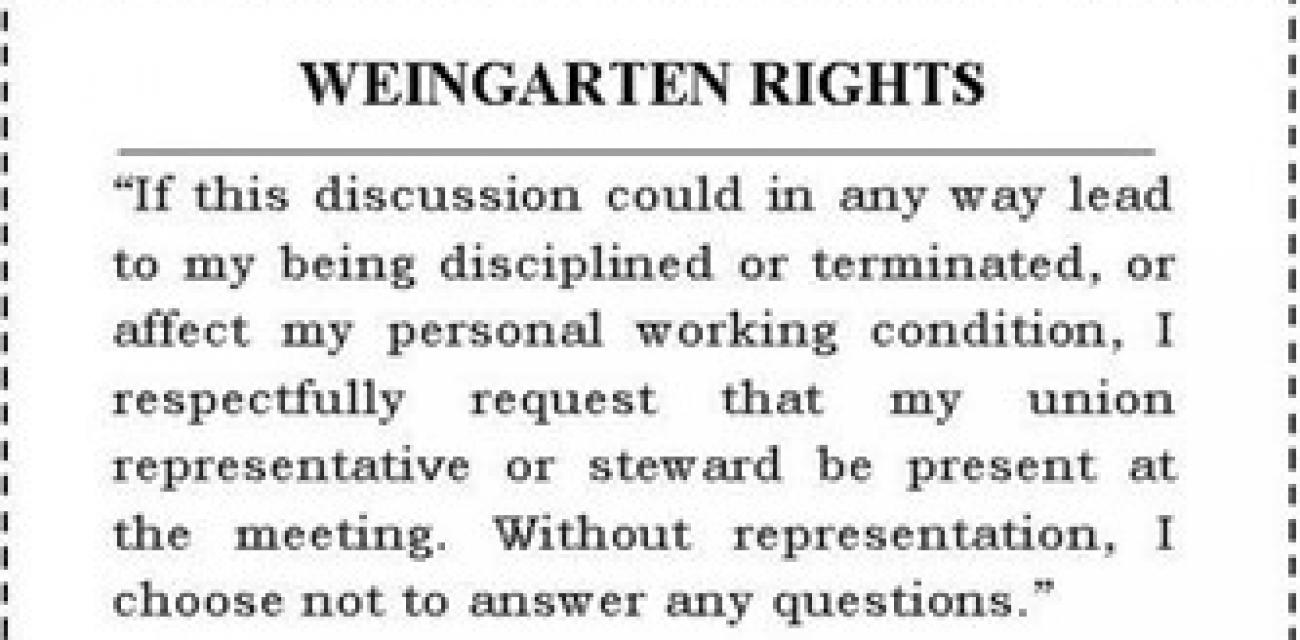“You have the right to remain silent. Anything you say can and will be used against you in a court of law…..”
We’ve all heard of Miranda Rights, rights granted to all Americans by law. But did you know that the same protections granted to someone being arrested also exist in cases where a union member might be subject to disciplinary action?
None of us got into public education expecting to deal with unfortunate situations that could cost one their job. However, it is important to keep in mind that if you are faced with one of those situations, your rights to remain silent prior to a proper hearing are protected by law.
In 1994, a tenured teacher, Andre Cadet, was brought to a 3020-a hearing that resulted in a revocation of his tenure and removal from his teaching position. Prior to his 3020-a hearing, Mr. Cadet faced insubordination charges by the New York City School District because he refused to answer questions before the District’s Special Commissioner of Investigations (SCI).
Mr. Cadet appealed the results of his 3020-a hearing in 1996 and lost. However, during the appeal, the New York State Education Commissioner ruled that Mr. Cadet did not have any obligation to testify before the New York City School District SCI and would not be subjected to any discipline in this regard. The reason for this decision, the Commissioner explained, was that the 3020-a hearing was the sole method by which tenured teachers could be disciplined and therefore Mr. Cadet had, in essence, the right to remain silent in response to any questions put to him prior to that hearing.
While it is true that Mr. Cadet lost his job, his case established a legal precedent that protects all tenured teachers.
As a result of the Cadet decision, a teacher is not required to answer any questions in any investigation that precedes a 3020-a hearing. Therefore, if a tenured teacher has any reason to believe that they are being asked questions regarding a situation that could result in disciplinary action, he/she can, “assert Cadet.” By doing so, the teacher cannot be held as insubordinate for refusing to answer questions.
In addition to asserting Cadet, any union member has the right to be represented in any meeting that involves an investigation into a member’s actions or could in any way result in disciplinary action against the member. These rights, known as Weingarten Rights, are a result of a 1975 Supreme Court decision in the NLRB v. Weingarten, Inc. In its decision, the court outlined specific rules that must be followed when an investigatory interview occurs:
1. The employee must make a clear request for union representation before or during the interview. The employee cannot be punished for making this request.
2. After the employee makes the request, the employer must choose from among three options. The employer must do at least one:
a. Grant the request and delay questioning until the union representative arrives and has a chance to consult privately with the employee; or
b. Deny the request and end the interview immediately; or
c. Give the employee a choice of having the interview without representation or ending the interview
3. If the employer denies the request for union representation, and continues to ask questions, it commits an unfair labor practice, and the employee has a right to refuse to answer. The employer may not discipline the employee for such a refusal.
It is very important to note that to be afforded the protections guaranteed by the Weingarten decision, union members must ask for a union steward/officer to be present during investigatory interviews. If a union member fails to ask for a representative, the protections afforded by the Weingarten decision do not apply.
Members unfamiliar with their Weingarten rights should take a screen shot of the cut-out card image in this article and save it for future reference. If for any reason you, as an LUT member, are asked to speak with an administrator about a matter which you feel might lead to disciplinary action, immediately halt any discussion and request LUT representation before proceeding. Building representatives are always available to assist members in these situations and ensure that your rights are protected.
 2017 NYSUT Communications Award - Best Website
2017 NYSUT Communications Award - Best Website
